Around the world, numerous entertainment festivals attract large numbers of tourists, serving as major attractions for visitors. Festivals in Southeast Asia, in particular, are renowned for their unique and imaginative concepts, often standing out for their unusual and distinctive nature. One of the most peculiar festivals is the annual Monkey Buffet Festival held in Lopburi, Thailand. This event is remarkable not only for its local appeal but also for its global uniqueness, as it invites not only humans but also monkeys to partake in a grand feast of fruits, vegetables, and sweets. The festival, celebrated in gratitude to the monkeys for their role in drawing tourism to the city, is a vibrant reflection of local customs and a thank-you gesture.
The Monkey Buffet Festival takes place annually on the last Sunday of November in the historic city of Lopburi, located 150 kilometers north of Bangkok, Thailand. Archaeological evidence suggests that Lopburi has been continuously inhabited for at least 3,000 years, making it one of Thailand’s oldest cities. The city boasts numerous ancient sites from various civilizations that have influenced the area over millennia. Lopburi is renowned for its sacred monkey population, which has led some to call it the “City of Monkeys.” The monkeys interact closely with both locals and tourists, residing among the ruins of the ancient Khmer Empire and the surrounding forests.

The idea for the Monkey Buffet Festival originated from a local businessman, Yanguth Kitwat Anonsont, in 1989. As the owner of a local hotel, Kitwat sought to leverage the city’s historical charm and its monkey population. He proposed the festival to the national tourism board, which agreed on its potential and supported its implementation. The festival quickly gained popularity and has grown significantly over the years, with attendance exceeding 10,000 people, including both locals and tourists.
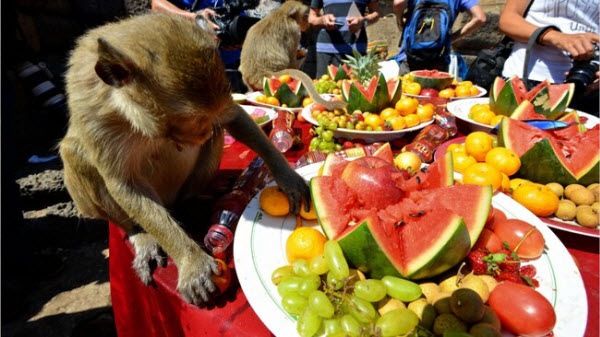
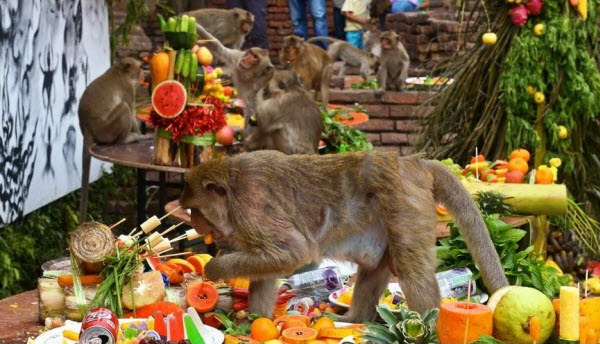
In the week leading up to the festival, city residents visit the ruins of the 13th-century Prang Sam Yot Temple, which is home to about half of the city’s monkey population. They distribute invitation cards to the monkeys, accompanied by cashew nuts, which the monkeys enjoy as a small incentive. A red carpet is rolled out, and chefs prepare a special vegetarian menu featuring white rice, fruit salad, and traditional Thai desserts made from egg yolks, known as “Thong Yod.”

The festival begins with performances by dancers dressed as monkeys, aimed at capturing the attention of the macaques. Despite the unusual nature of these performances, they have proven effective over the years. The monkeys eagerly respond, coming out of the forest to join the festivities at the temple ruins. More than 3.5 tons of colorful fruits and foods are served on long tables adorned with red or purple tablecloths. The monkeys, along with visitors, indulge in the feast.
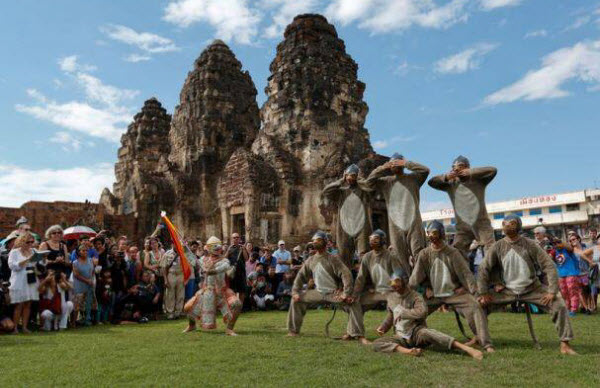
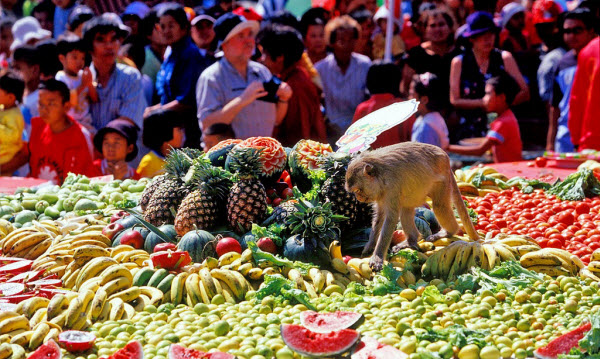
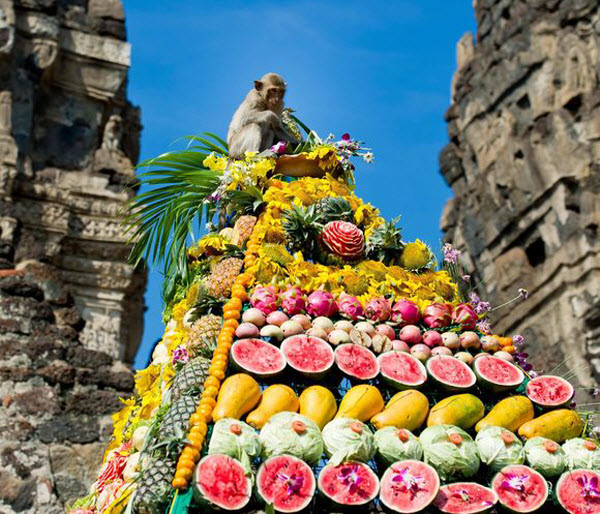
Throughout the festival, monkeys are seen climbing towering pyramids made of pineapples, watermelons, durian, and other fruits. They leap across tables and engage in playful scuffles. In addition to fruits, there are plenty of Thai snacks, sticky rice dishes, pastries, and beverages like fruit juices and sodas, which the monkeys use to wash their food. The festival also features lively musical and dance performances, highlighting Thailand’s rich cultural heritage, along with various entertaining contests that create a carnival atmosphere.
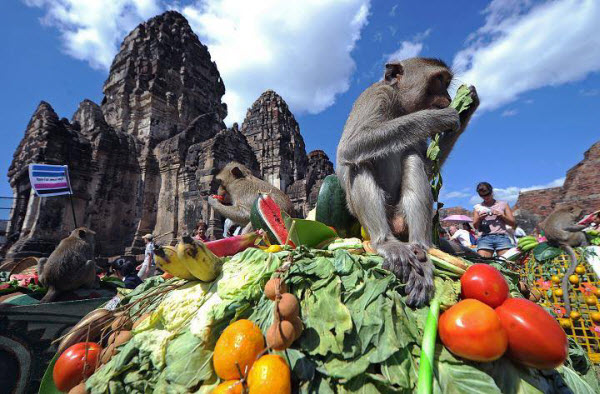
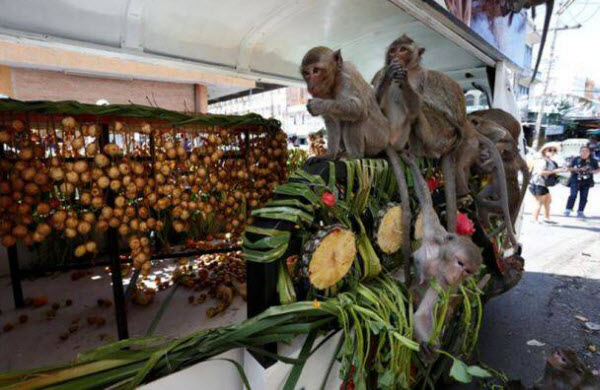
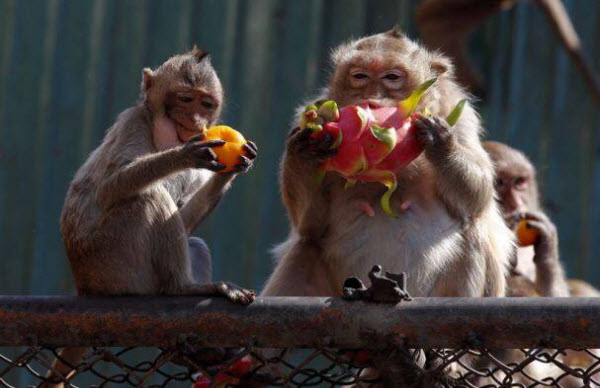
Besides its tourism appeal and extensive media coverage, the Monkey Buffet Festival also represents over two millennia of reverence for monkeys, inspired by the Hindu epic “Ramayana.” In the story, Prince Rama seeks to rescue his wife, Sita, from a ten-headed demon, and the monkey king Hanuman leads his army to help Rama reunite with Sita. Hanuman is worshipped in both India and Thailand, and Thais believe he founded the city where the temple and monkeys reside. This belief explains why locals tolerate the monkeys’ mischievous behavior—such as stealing phones, bags, and food—with patience and why they offer various benefits, including hosting a grand festival, to bring prosperity and good fortune.

